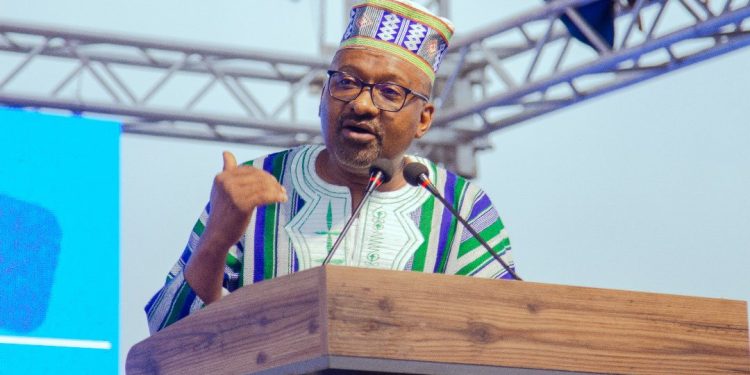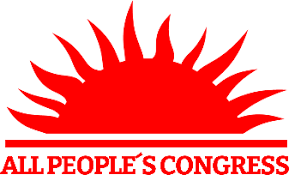Sierra Leone’s Vice President, Dr. Mohamed Juldeh Jalloh, has reaffirmed the government’s unwavering commitment to equitable vaccine access during the official launch of World Immunization Week 2025, held in Freetown under the global theme “Humanly Possible: Immunization for All.”
Speaking on behalf of President Dr. Julius Maada Bio, the Vice President highlighted the significant strides made in the country’s immunisation efforts, noting a remarkable drop in zero-dose children, from 40,000 to 10,000, within just one year.
“Behind every immunisation statistic lies a child’s life and a family’s future,” he said. “No matter where a child is born or the condition of their community, we are committed to reaching them.”
Vice President Jalloh underscored that what was once a distant goal has become a daily reality, thanks to introducing new vaccines, expanding immunisation programmes, and investing in strengthening Sierra Leone’s health systems.
Minister of Health and Sanitation, Dr. Austin Demby, reiterated the government’s determination to leave no community behind. He revealed that vaccine coverage for Penta 3 T and Yellow Fever has now surpassed 90%, but acknowledged persistent disparities in underserved areas.
Dr. Demby introduced a new life-stage immunisation strategy to provide “the right vaccine at the right time” across all age groups—from infancy through adulthood. He called for greater community engagement, increased domestic funding, and private sector collaboration, particularly in supporting local vaccine production.
“Immunisation is not just the responsibility of government—it is the responsibility of every one of us,” Dr. Demby stressed.
International development partners also commended Sierra Leone’s progress. WHO Country Representative, Dr. Rudolf Schwenk, lauded the country’s 40% reduction in mortality attributed to broader vaccine access and the introduction of new vaccines, including those for HPV and malaria. He called for continued investments to sustain and expand gains, describing immunisation as “both achievable and a human right.”
UNICEF Country Representative, Dr. George Ameh, praised the country’s Expanded Programme on Immunisation for achieving over 90% coverage in recent years. He cited innovations such as solar-powered cold chain systems and last-mile delivery models as key enablers. “Each vaccination is a dose of good news,” he said, “protecting the most vulnerable among us.”
As World Immunisation Week continues, Sierra Leone stands in solidarity with global partners to ensure that every child, everywhere, receives the life-saving protection of vaccines, turning what is humanly possible into a national reality.













